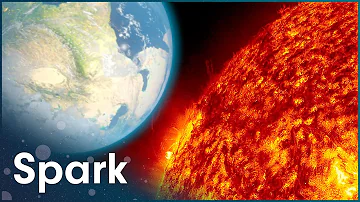How cold does it get on Venus?
Table des matières
- How cold does it get on Venus?
- Is Venus hotter than the Sun?
- Is Venus getting hotter or colder?
- Will Venus ever cool down?
- Is Venus hotter than Mercury?
- What is Earth's twin planet?
- Why is Mars red?
- Did Venus ever have life?
- What happens if we nuke Venus?
- Is it actually possible to terraform Mars?
- Why is Venus the hottest planet in the Solar System?
- What are the causes high temperature on Venus?
- What is the temperature on Venus in an average day?
- What are the low and high temperatures on Venus?

How cold does it get on Venus?
Average Temperature on Each Planet The average temperatures of planets in our solar system are: Mercury - 800°F (430°C) during the day, -290°F (-180°C) at night. Venus - 880°F (471°C)
Is Venus hotter than the Sun?
The hottest planet in our solar system is Venus, When it comes to temperature, distance from the Sun matters, but it takes a backseat to wrapping a planet in a atmospheric blanket of carbon dioxide.
Is Venus getting hotter or colder?
Since Venus releases heat slightly quicker than it takes it in, it's unlikely to become hotter on its own. The surface of Venus is hot because its massive atmosphere causes a huge greenhouse effect. ... Either way, Venus is unlikely to get hotter by itself.
Will Venus ever cool down?
Because Venus lacks a protective magnetosphere, the upper atmosphere is exposed to direct erosion by the solar wind and has lost most of its original hydrogen to space. ... Venus would not begin to cool down until after most of the carbon dioxide had already been removed.
Is Venus hotter than Mercury?
The carbon dioxide traps most of the heat from the Sun. The cloud layers also act as a blanket. The result is a “runaway greenhouse effect” that has caused the planet's temperature to soar to 465°C, hot enough to melt lead. This means that Venus is even hotter than Mercury.
What is Earth's twin planet?
Venus Venus is sometimes called Earth's twin because Venus and Earth are almost the same size, have about the same mass (they weigh about the same), and have a very similar composition (are made of the same material). They are also neighboring planets.
Why is Mars red?
Well, a lot of rocks on Mars are full of iron, and when they're exposed to the great outdoors, they 'oxidize' and turn reddish - the same way an old bike left out in the yard gets all rusty. When rusty dust from those rocks gets kicked up in the atmosphere, it makes the martian sky look pink.
Did Venus ever have life?
To date, no definitive proof has been found of past or present life on Venus. Theories have decreased significantly since the early 1960s, when spacecraft began studying the planet and it became clear that its environment is extreme compared to Earth's.
What happens if we nuke Venus?
One proposed way of altering Venus' atmosphere is to bomb it with hydrogen. Hydrogen bombs, when reacting with the carbon dioxide in the atmosphere, would create graphite and water. This would fall to the planet's surface and cover 80% of it with oceans. ... Venus would only have 10% the amount of water that Earth has.
Is it actually possible to terraform Mars?
Terraforming Mars is therefore a daunting endeavor that doesn't seem possible with current technology. ... These gases are short-lived, though, so the process would need to be repeated on a large scale to keep Mars warm. Another idea is to import gases by redirecting comets and asteroids to hit Mars.
Why is Venus the hottest planet in the Solar System?
- Venus is the hottest planet in our solar system because it is covered by a thick layer of clouds composed of carbon dioxide and other gases, which prevent the heat from the sun from escaping back into outer space.
What are the causes high temperature on Venus?
- Water and water vapor are extremely rare on Venus due to its high surface temperature that can approach 758 K (900 °F). This extreme temperature is caused by the greenhouse effect. As sunlight heats Venus' surface, the surface radiates infrared energy that is kept from escaping the planet by dense carbon dioxide atmosphere.
What is the temperature on Venus in an average day?
- The average temperatures of planets in our solar system are: Mercury - 800°F (430°C) during the day, -290°F (-180°C) at night Venus - 880°F (471°C) Earth - 61°F (16°C)
What are the low and high temperatures on Venus?
- Annual high temperature: 84ºF: Annual low temperature: 59ºF: Average annual precip. 52.15 inch













